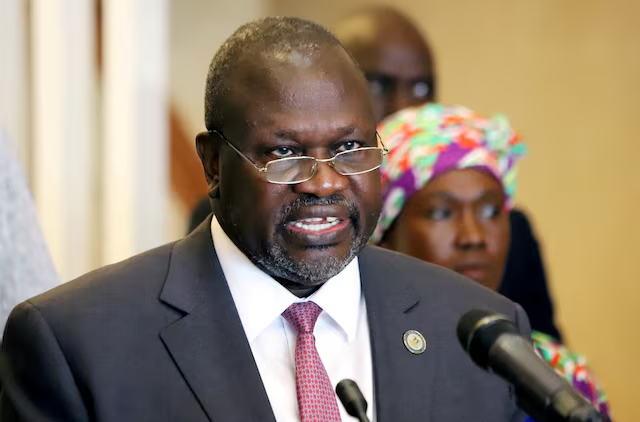South Sudan’s opposition has accused the government of enforcing authoritarian control after First Vice President Riek Machar faced charges of treason, murder, and crimes against humanity. Authorities suspended him from office alongside 20 others over alleged involvement in White Army militia raids in the northeast in March.
Machar’s party, the SPLM-IO, immediately dismissed the charges. In a statement, it said the government fabricated the accusations to weaken the peace deal, sideline Machar, and impose one-tribe rule. The group stressed that the case is political rather than legal.
Since March, security forces have confined Machar to house arrest, alarming both citizens and international observers. His detention has reignited fears of another conflict like the 2013–2018 civil war. That war pitted Machar’s Nuer loyalists against fighters of President Salva Kiir’s Dinka faction and killed hundreds of thousands. A peace agreement ended the fighting and created a unity government, but Kiir and Machar never fully trusted each other. Sporadic clashes have continued.
Analysts believe Kiir wants to replace Machar with his ally, Second Vice President Benjamin Bol Mel. The U.S. sanctioned Mel over allegations of winning government contracts unfairly. Still, Juba has lobbied Washington to lift the sanctions.
Lobbyist Joseph Szlavik, who represents South Sudan in Washington, said officials raised the sanctions issue during recent bilateral talks. He added that the discussions also covered deportation matters, noting that eight deportees arrived in July, including seven expelled from third countries.
The charges against Machar escalate his long rivalry with Kiir. For the opposition, the government’s move proves it seeks to crush dissent and control power. For citizens and observers, the crisis raises the specter of renewed bloodshed at a time when the fragile peace remains shaky.
READ: South Sudan on the Edge as Clashes Threaten Fragile Peace Deal

